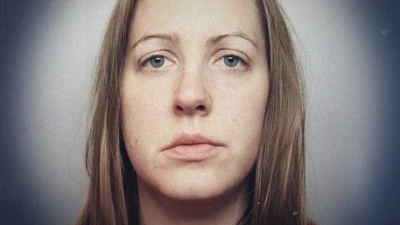We've updated our Privacy and Cookies Policy
We've made some important changes to our Privacy and Cookies Policy and we want you to know what this means for you and your data.
Libya revolt: Hague urges 'legal basis' for no-fly zone
There must be a sound "legal basis" and wide international support for any no-fly zone in Libya, William Hague has told opposition groups there.
In a conversation with a senior anti-Gaddafi official, the UK foreign secretary said a no-fly zone was one of several responses being considered.
He told the ΒιΆΉΤΌΕΔ there were "mounting" calls from the Arab world for the move.
Nato have said there must be a "demonstrable need" and a "clear UN mandate" for any such action.
As fierce fighting continues between government and rebel forces, EU foreign ministers and Nato defence ministers met to discuss their response to the escalating crisis - ahead of a summit of EU leaders on Friday.
'Crucial support'
The UK and France have been seeking to build support for the UN to draft a resolution urging an air exclusion zone in Libya - as a way of reducing the violence and facilitating humanitarian assistance.
The Foreign Office said Mr Hague had told Mahmoud Jabril, Special Envoy of the Libyan Transitional National Council that planning was under way on a number of options including a no-fly zone.
But it said that Mr Hague had made it clear that any no-fly zone would "need international support, a clear trigger and a legal basis" to proceed.
Mr Hague, who has reiterated the UK's condemnation of the "appalling and unacceptable" use of violence by the Gaddafi regime, later told the ΒιΆΉΤΌΕΔ that Morocco and six Gulf states - as well as the Libyan opposition - now supported a no-fly zone.
"The demand is mounting in the Arab world and I think that is very important," he said. "That is absolutely crucial in bringing a no-fly zone into being.
"We then also have to be clear it would be legal and, indeed, there is broader international support."
He said the case for a no-fly zone would be "massively strengthened" if the Gaddafi regime mounted "large scale bombings" on built-up areas and targeted civilians.
'Ready to act'
Nato's secretary general Anders Fogh Rasmussen said he agreed with Mr Hague about the "three guiding principles" that would determine any future action.
The organisation was "vigilant" and "ready to act" in regard to Libya, he said, but would only do so in response to a "specific request" for assistance and in concert with action on other fronts - such as proposals for further EU sanctions against the Gaddafi regime.
Mr Rasmussen also said Nato did not discuss direct intervention in the conflict amid reports of French support for direct air strikes on strategic military sites controlled by the regime.
ΒιΆΉΤΌΕΔ chief political correspondent Laura Kuenssberg said it was significant Mr Hague had spoken to the Libyan opposition at this time and that the Foreign Office had made details of the conversation public.
France has recognised the opposition as the official representatives of the Libyan people - the UK has stopped short of this but Mr Hague said they were a "legitimate" group that had to be engaged with.
But our correspondent said there was still widespread concern in Westminster about the UK's involvement in any future action in Libya and scepticism about how effective a no-fly zone would be.
Asked whether a no-fly zone would require a pre-emptive attack on the country to take out its air defences, Defence Secretary Liam Fox has said there were "alternatives" to this and this had not been the basis for action in Iraq in the early 1990s.
If an enemy locked its air defence radar on Nato planes, they could "regard that as a hostile action and take subsequent action", he told Radio Four's Today programme. "That's one military option but there are other military options that we have used," he added.
'International outlaw'
Meanwhile, Former Prime Minister Sir John Major has warned that the UK and other countries face "real dangers" whatever course of action they take in Libya.
"If we move into a no-fly zone, it could escalate," he told Sky News. "There are dangers, let me make that absolutely clear. There are real dangers in going ahead.
However, he described Col Gaddafi as an "international outlaw" and said there were "real political and diplomatic dangers" in not pursuing such a course of action.
"If he (Col Gaddafi) is not finished the world will regret it subsequently," he added.
"If he wins, there will be many bloody reprisals. It will be a very messy and bloody affair. And the world would have stood by and let him win.
"I wonder what that does for the prestige of the rest of the world and what it does to encourage other would-be dictators to believe they can act in the same sort of way elsewhere.
The EU have added five financial institutions to a list of regime-controlled bodies whose assets and resources are to be frozen in an effort to further ratchet up the pressure on the Gaddafi family.
And Sir George Young, leader of the House of Commons, reassured MPs that there would be a parliamentary debate beforehand in the event that any UK forces were to be deployed in Libya.
Top Stories
More to explore
Most read
Content is not available








